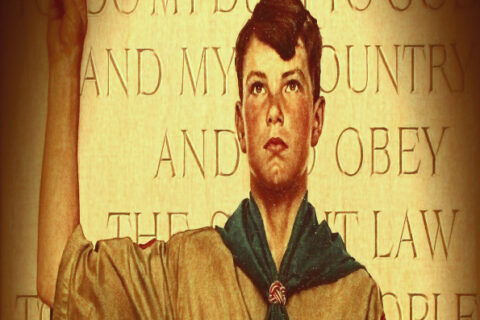And you run, and you run to catch up with the sun, but it’s sinking/
Racing around to come up behind you again/
The sun is the same in a relative way, but you’re older/
Shorter of breath, and one day closer to death
“Time,” by Pink Floyd (1973)
Twentieth century American popular fiction can be summed up by the romantic loner. Raymond Chandler’s Philip Marlowe and Dashiell Hammett’s Sam Spade are rugged loners akin to Wild West cowboys or European knight errants. The lonesome, pathetic characters of Nathanael West’s The Day of the Locust (1939) try to find meaning in their lives via the decadent artifice of Hollywood. The neglected James Crumley wrote about boozehound private detectives wasting their lives away in flyover country. John Fante, the hero of Charles Bukowski, wrote the greatest novel about Los Angeles in Ask the Dust (1939), which follows the aimless life of writer Arturo Bandini as he oscillates between wooing and denigrating a mentally unstable Mexican barmaid named Camilla Lopez.
Arguably the apex of lonely fiction is 1961’s The Moviegoer by Southern scribe Walker Percy. Percy’s Binx Bolling is pretty much all of us (sans the fact that he fought in the Korean War) in that he is detached from meaningful tradition, adrift in the urban metropolis, and surrounded by other young men and women who have been sold a diseased bill of goods about the importance of individualism above all. The Moviegoer is rightfully praised for its focus on mediated life (in this case, the movies) as a replacement for actual life and its discussions on the South’s loss of heritage. The real power in Percy’s novel, however, is its contemporary resonance. If anything, Americans are more like Binx Bolling than ever before. Indeed, the United States and the post-industrial world is in the midst of a loneliness epidemic.
According to a 2010 study published by Brigham Young University, loneliness may shorten a person’s life by fifteen years. Loneliness weakens the heart, increases blood pressure, and makes suicidal thoughts more common. American men are far more likely than women to experience loneliness and its attendant health problems. In a widely shared article in the Boston Globe, Billy Baker put the source of American male loneliness at the feet of our work culture. The average middle class man, Baker notes, is overworked, underpaid, and enjoys a “life” so regimented that he has no time for private reflection. Life is worse for working class and rural men. That’s the class of white Americans that is dying younger and leaving behind deeply scarred corpses.
Loneliness is also at the center of our ongoing opioid crisis. During a TEDx talk, neuroscientist Rachel Wurzman articulated the idea that lonely people are attracted to drugs in order to assuage their mental anguish. Lonely addicts, therefore, keep consuming pills because nobody is more alone and isolated than an addict.
It goes without saying that loneliness is driving historically high suicide rates too. A cursory look around at our culture is enough to make even the pious consider self-termination. Our civilization is one where cheap labor imported from the Third World strips away jobs from people already living on a thread, where forced multiculturalism weakens intercommunal trust, where the neurosis of homosexuals and urbanites is normalized, and where good, honest citizens have to slave away at meaningless jobs in order to scrape by and feed the Leviathan (which redistributes this money to single moms, drug abusers, criminals, and other denizens of the underclass).
No recent work of fiction better encapsulates our current desperation like Iain Reid’s I’m Thinking of Ending Things. To judge by the book’s cover, its description as a “thriller,” and its chick lit-esque title, one would think that the Canadian Reid’s debut effort is nothing more than a tawdry bucket of blood with the depth of a thimble. Reid toys with this stereotype. A majority of the novel is narrated by an unnamed blonde with all the usual signs and signifiers of a twenty-first century flapper—she drinks, has casual sex with men, and never ceases her ongoing program of self-analysis. In sum, she is the narcissistic “girl interrupted” stereotype with an SSRI prescription and a library full of female writers complaining about their self-inflicted wounds.
The narrator’s main source of fascination and frustration is Jake, a brilliant postdoctoral student who works in a laboratory. Jake is as much of stereotype as the female narrator, as he is a chicken-chested beta male who may live here on Earth, but mostly resides in his own head. Jake and the girl are dating, but she is thinking about breaking off the relationship. Her reasons are not clear, save for the fact that Jake is an eccentric who does not seem to have a career path. She distorts her fickleness with long ruminations on pop psychology. For instance,
“I don’t know what this means—‘let things happen naturally’—but I’ve heard it over and over. People say it to me a lot about relationships. Isn’t that what we’re doing? I’m letting myself consider these thoughts. It’s natural [1].
“Let things happen naturally” is just one of the trite clichés examined in this novel. Another is the old standby of “it’s me, not you.” The narrator thinks and says these things because, as much as she likes to think of herself as unique, she is as much of a prisoner of our unnatural sex relations as anyone else.
As F. Roger Develin shows in Sexual Utopia in Power, the coupling of feminism with free love and social media has birthed a brood of narcissistic vipers, both male and female. Love and sex are now indistinguishable from the ethos of the marketplace. Women, most of whom have an oversized opinion of themselves, battle each other in order to date or bed a small selection of “alpha” types who show the requisite symbols of wealth in our society (physically attractive, but also wealthy and well-stocked with consumer goods). For the men who do not meet this ideal, their options are limited to inceldom or the hamster wheel of meaningless dates with women who just want a free meal.
Jake, despite having a girlfriend and access to sex, is an incel. He is oblivious to the fact that his girlfriend wants to break things off, and one gets the feeling that Jake would continue to hang on to the relationship until the last minute out of sheer desperation. Jake is a socially awkward, big-brained type. Even worse for Jake in terms of his relationship and his status on the sexual marketplace at large, he comes from a poor family of farmers. When Jake takes his girlfriend to meet his parents on a cold, wintry night, the dread that has been building all throughout the novel ratchets up. The house is described as in need of fresh paint, with a ripped and rusted porch swing [2]. The furniture inside is no better, as it is outdated and worn down by years of use. Jake’s parents are equally hollowed out. His father is the quintessential working man dressed in staid plaid, while Jake’s half-deaf mother cakes herself in too much make-up as a way to cope with her mental illness.
Jake’s family are the ghoulish left-behinds of the American heartland. They are the Slaughter family of the original Texas Chainsaw Massacre without the cannibalism, and they are the Femm family of The Old Dark House without the camp. Reid toys with horror movie tropes during these scenes at the farmhouse, but does not deliver true horror until later. The only curse haunting this family is that their gifted son Jake left them in order to find success at a faraway university, but he too fell victim to society’s cold shoulder. Few women desire him, while his academic pursuits appear unfulfilling.
The climax of I’m Thinking of Ending Times takes place in an empty school. This is the perfect setting, for schools tend to denote life, youth, and the process of (coerced) socialization. An empty school is the void, and every inch of the hallways carry traces of missing life. Schools today are also synonymous with acts of violence, particular school shootings where loners and other maladjusted teenagers seek fame, meaning, or an elaborate suicide by slaughtering their classmates. The villain inside of the school in I’m Thinking of Ending Things is not a student, but rather a creepy janitor who two undisclosed voices have been characterizing throughout the novel as a lonely and fully atomized individual. The janitor has no name, no friends, and no life outside of the empty school.
Up until the end, Reid directs his audience to think that this mysterious janitor is the man who kills Jake and his girlfriend. It is only in the last twenty pages or so that it is revealed that the janitor is Jake and that the murder is a suicide.
I’m Thinking of Ending Things never leaves the theme of loneliness for a second. Jake’s sharp loneliness leads him to obsess over some random girl he met at a bar years ago. In Jake’s tortured interior life, this girl is given not only a backstory and her own thoughts, but is also placed in a lop-sided relationship with Jake. The novel’s scenery is lonely too. The farmhouse sits alone in the snow, the school is all alone in the woods, and Jake’s occupation as an overnight janitor is the height of loneliness. Loneliness equals despair, and despair becomes suicide.
I’m Thinking of Ending Things is the novel of our age. It shows how what we’ve been told to enjoy—casual relationships, work, and schooling—has driven us to collective melancholy. Modern life is a lonely place made up of hyper-individualistic beings who only think of human interaction in terms of cost-benefit analysis. All the accouterments, all the apps, and all of the luxuries cannot hide the fact that we are letting our people, especially white, working class males, wither alone. Welcome to the age of Jake; welcome to the age of George Bell, the unknown Doomer.
[1]: Iain Reid, I’m Thinking of Ending Things (New York and London: Scout Press, 2016): 33.
[2]: Reid, I’m Thinking of Ending Things, 77.
-By Jake Bowyer and originally published at The American Sun

Visit The American Sun at The American Sun




